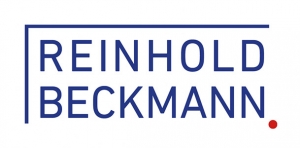CDU/CSU and SPD argue about implementation of EU directive
At least since Edward Snowden’s spectacular revelations about the NSA’s spying practices, everyone knows what a whistleblower is.
Whistleblower usually accept a very high personal risk and repressions in order to point out significant abuses and violations of rights within their field of activity to make them public.
This usually results in termination of the respective employment without notice. This has also always been confirmed as permissible by the labor courts due to the lack of mutual trust between employer and employee, which is necessary for any employment relationship – and which is precisely what is made clear by the whistleblowing to third parties or the public.
On the other hand, there is a considerable public and social interest in ensuring that violations of the law are made public, punished and prosecuted, also and especially in companies.
This does not happen if the employee always has to expect termination or other repression.
The EU Directive on the protection of persons who report violations of Union law of 23.10. 2019.
The so-called Whistle-blower-Directive provides the protection of persons who report violations of Union law in certain areas – for example, when it comes to public procurement, financial services, product safety, transport safety, environmental protection, food, public health, consumer and data protection.
This directive would actually have to be implemented by the German government by December 17th, 2021, as part of its obligations under the EU agreements. In addition, the Committee of Ministers of the Council of Europe had already established principles for national regulations on whistle-blower protection in 2014. The United Nations Convention against Corruption, which Germany ratified in 2014, also calls on member states to take appropriate measures.
International pressure is therefore high. Effective protection for Whistle-blower should be standard practice!
Where is the problem for the disagreement between CDU/CSU and SPD?
The main point of disagreement between these parties is whether Whistle-blower should only be protected when it comes to violations of EU law or also when it comes to violations of German law.
The SPD wants to disclose violations of both European and German law. “Because otherwise, anyone who reports a violation of European data protection regulations would be protected, but anyone who points out bribe payments, tax evasion or violations of German environmental or occupational safety regulations would not be protected. “
However, the CDU/CSU would like to grant whistle-blower protection only for violations of EU law, because otherwise the requirements of the EU directive would be implemented in an excessive manner.
Particularly in the current pandemic situation, many companies are struggling for their existence and should not have any additional obstacles put in their way by further administrative burden and regulations.
It is doubtful whether a legal regulation will be passed in this legislative period, although this would logically lead to violation of contract proceedings by the EU against the Federal Republic of Germany.
Whistle-blower could also refer directly to the EU directive
However, if the implementation period expires without a corresponding law, employees could also directly rely on the EU Directive.
If, for example, the employee is terminated after receiving a tip, he or she could refer to the EU directive as a protective law – and the termination could be unlawful.
Most recently, for example, the case of a female employee caused a stir with a video from the canteen of the Tönnies slaughterhouse showing people sitting close together at lunch – in the middle of the corona pandemic.
The woman defended herself against her summary dismissal at the Bielefeld District Court, where a settlement was finally reached. In the future, courts may be more likely to rule in favour of Whistle-blower – especially since they must interpret German law in a way that implements EU law as effectively as possible.


